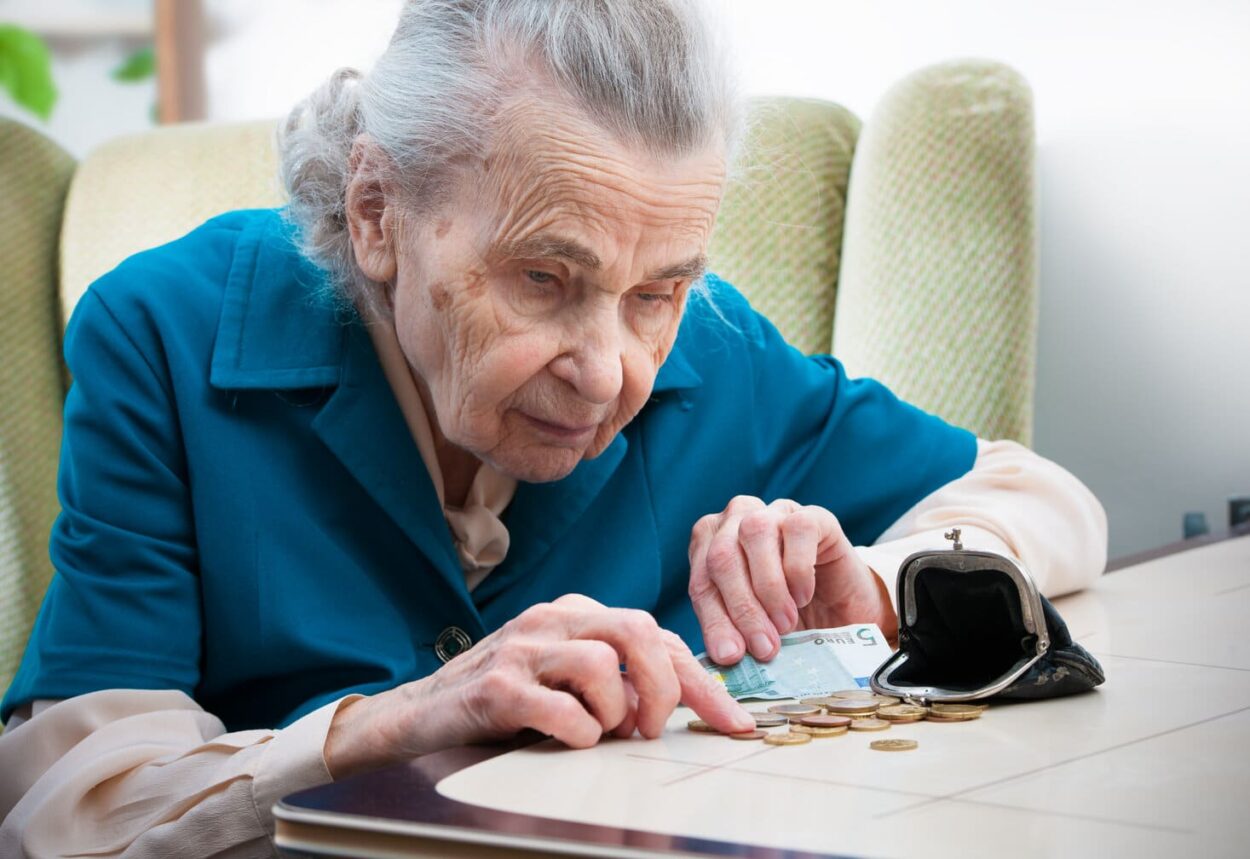Jasmine Birtles
Your money-making expert. Financial journalist, TV and radio personality.


It’s well-known that having children is no cheap affair. Being childless not only means you’ll have a lot more spare cash, but you’ll have more free time to focus on your career, or other personal goals.
This can be great until you hit retirement age. As you get older, not having children around can mean that the freedom you had earlier on in life becomes a burden. Many older people rely on their adult children to provide some care when they need help. However, those without children will have to face their later years without such support. In many cases, having to fork out large sums to pay for additional health and nursing care.
A recent study revealed that women who choose to not have children could be worse off in retirement – especially when it comes to paying for care costs. Let’s look at how to step up the financial advantages of not having children to protect against a skint retirement!
Being childless has plenty of benefits – you have a lot more time to enjoy and spend money how you wish. Whether that’s splashing out on a new car or booking a relaxing holiday, childless adults have much more financial freedom.

The amount we spend on raising children is higher than ever. In fact, according to Child Poverty Action Group (CPAG), the average cost of raising a child until they reach 18 now totals £185,000 for single-parent families, and £151,000 for couples. With the average family in England having 2 children, being childless will actually save you over £300,000 in a lifetime!
Plus, the only person you’ll have to worry about financially is yourself. No matter how grown up kids are, they may need support at any time. Planning for unexpected changes in their lives as well as your own can become a big financial burden.
Being childless also means you’ll be able to prepare a great deal more for your retirement. The earlier you can start contributing to a pension, the more time you’re allowing for your money to grow. The larger your savings and pension pot is, the more likely it’ll be that you’ll be able to afford your own care if needed, and won’t have to rely on state-funded aid.
During your working years, not having children is ideal. Without little ones dominating your time, you’ll be able to focus more on yourself and your career. You can prioritise your own goals and dedicate yourself to your profession, moving up the career ladder, or setting up your own business, if you wish. Mothers in particular tend to lose out financially. Taking time off for maternity leave and childcare can leave their income years behind their childless counterparts. Plus, child-free couples will also have to deal with less disparity between their salaries. As the gender pay gap widens dramatically during the years after women have their first child.
No children means there’s no pressure of having to continue to provide for them by leaving behind a substantial inheritance. If you need to sell your home to pay for care for example, there’s no feeling of guilt that you’re wasting away an inheritance.
Without children there isn’t anyone whose traditional role is to look after you. Although obviously there’s no guarantee that having children will ensure you’ll have someone to care for you. Either way, you’ll need to make sure you have the means to provide yourself with your own care should you need it later on in life.
According to research at Paying for Care, the average cost of a UK residential home last year was £33,852 per annum. On top of this, you can expect to pay at least another £10,000 every year for nursing care as well. Just five and a half years of residential care will end up costing the same amount as a single parent raising a child. So although in your younger years being childless will be saving you vast sums of cash, paying for care later down the line can extortionate amounts and it’s important to be as prepared as possible.
Inheritance tax rules state that the residence nil rate band only applies if your home is being left directly to children or grandchildren. No children will mean you’ll miss out on this allowance altogether and much more of your estate will be taxed.
Plus, without children automatically inheriting, more time will need to be dedicated to planning your will and inheritance.
A study by the Institute on Aging reported that 40% of men and 53% of women over the age of 85 needed help with basic care. Single, childless women in particular could struggle as they reach older age, needing more care and help. The earlier you begin to prepare for this eventuality, the better off you will be in the long run.
Naturally, most people want to stay in their homes for as long as possible, but looking at down-sizing can reduce costs and make it easier to maintain as you get older.
A Lifetime ISA can help you save for your retirement. Not only do you get all the regular tax benefits of an ISA but you also get paid an additional 25% bonus from the government on your savings. You can put up to £4,000 a year into a LISA, meaning if you put the full amount in you’ll get £1,000 in an extra bonus every year! How can you say no to that?
The one catch with LISAs is that you can only access the money if you’re using it for a deposit on your first home or when you reach the age of 60. But this means that by retirement age you could have built a great nest egg, particularly on stocks and shares LISAs where the bonuses, compound interest, and investments all help to grow your savings.
The more you can put into savings now, the better. Although savings account interest rates are currently at an all time low, investing is a great way to let your money grow. Check out Saving vs Investing: What’s the difference? And 7 Investment Tips for Stock Market Beginners for more help on how to get started.
There are several options on how you can pay for care but what is best suited will depend on your own personal and financial circumstances.
You may be entitled to NHS Continuing Healthcare if you have significant, ongoing mental or physical health needs. You’ll need to be assessed to check your eligibility, but it could cover all your healthcare costs if you do meet the requirements.
One way of funding your healthcare is by building up a substantial sized pot of savings that is solely for that purpose. However, it’s impossible to predict how much you will need, or whether you will actually need it.
Depending how you choose to utilise your pension, if you don’t buy annuity then you may have a sum left to pay for care. (You can find out more about annuity here). Pensions are generally the better option to saving pots as you also receive contributions from your employer and government allowances.
Generally ends up as the most common solution to paying for healthcare. Renting out the family home is one option, but it can be unpredictable and put you in a difficult situation if you have problematic tenants or they fall behind on rent. A second option is equity release. It’s a way of accessing the cash tied up in your home if you’re over the age of 55. However, realistically most people end up selling their home to pay for their care.
For more helpful advice and tips on how to keep costs low as a parent, check out these articles next.

This is a very interesting article, and more around this topic of being childless (if single or married) would be interesting.
Also I am really interesting in the financial impacts short and longer term of looking after aging parents.